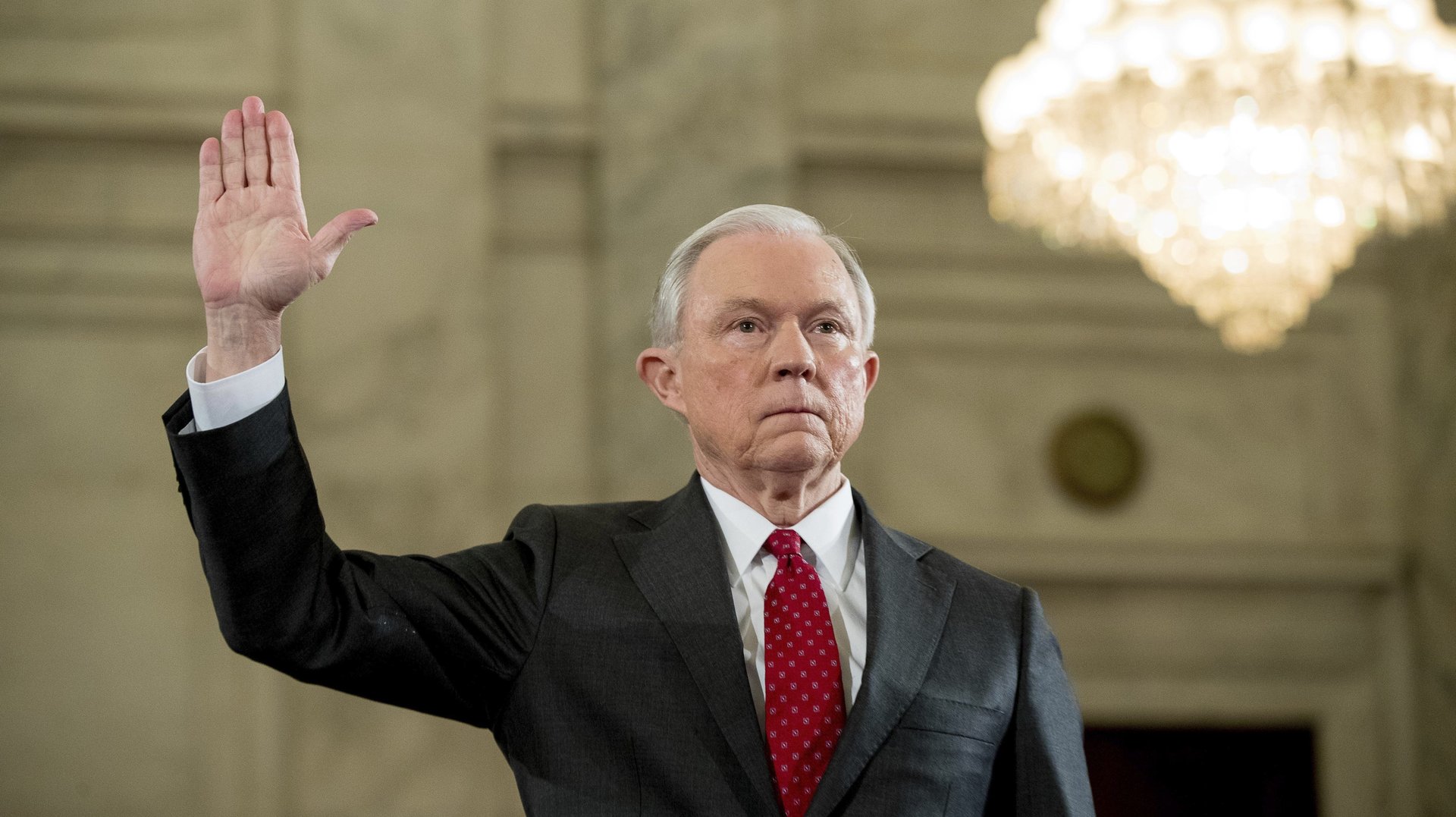The Jeff Sessions confirmation hearing: What he said about immigration, race, pot, and Hillary Clinton
The nomination of Jeff Sessions, Donald Trump’s pick for US attorney general, has been rejected by civil rights groups, immigrant advocates, and some 1,400 law school professors who say they are worried that he’s unable to enforce the country’s laws without prejudice.


The nomination of Jeff Sessions, Donald Trump’s pick for US attorney general, has been rejected by civil rights groups, immigrant advocates, and some 1,400 law school professors who say they are worried that he’s unable to enforce the country’s laws without prejudice.
“Communities across this country are concerned about whether they will be able to rely on the Department of Justice to protect their rights and freedoms,” senator Dianne Feinstein, a California Democrat and ranking member of the Senate judiciary committee, told Sessions at his Jan. 10 confirmation hearing.
During several hours of questioning, the Alabama Republican senator told his Senate colleagues he would abide by and defend the law, whether it relates to abortion rights protected under Roe v. Wade, same-sex marriage, or the policies created by his prospective boss.
Asked whether he would go along with the incoming president if he were to propose anything illegal, Sessions said he hoped Trump would trust his judgment. But ultimately, Sessions said, anyone filling the post he’s up for “would have to resign before agreeing to execute a policy that the attorney general believes would be unlawful or unconstitutional.”
Sessions also said he would recuse himself from any cases involving Democratic presidential candidate Hillary Clinton, whom he has suggested should be more deeply investigated for her use of a private email server while serving as secretary of State and for her family’s foundation dealings. (He also specified that he did not participate in the “lock her up” chants heard at many of Trump’s campaign rallies.)
Here some other highlights from the first day of his hearing.
On immigration
Sessions was particularly clear about his positions on immigration, an issue over which he would have outsize influence if he’s confirmed.
As attorney general, Sessions said, he would support the repeal of the Deferred Action for Childhood Arrivals, or DACA, the Obama administration program that allows minors who were brought to the US illegally to stay and work. He said granting citizenship to undocumented immigrants would encourage more of them to come. Sessions also said the US should accept immigrants based on skill, and acknowledged that the US doesn’t have the resources to find and deport all the people in the country illegally.
“We need to fix the immigration system,” he said. “It’s not been working right.”
Multiple senators pointed out, however, that Sessions has voted against several bipartisan efforts to change the country’s immigration laws.
Marijuana policy
Sessions has been critical of marijuana legalization, famously saying that “Good people don’t smoke marijuana.” But at the hearing he sounded less staunch in his opposition to liberalizing drug laws.
While he did not commit to keeping Obama’s policies on state marijuana laws, which include not prosecuting users of medical marijuana, he said some of them were “truly valuable” for helping the federal government evaluate which cases to prosecute. When asked whether he still believes that marijuana trafficking should be punished by the death penalty, he said no.
Racism claims
Sessions spent a fair amount of the hearing, which was occasionally interrupted by yelling protestors, defending himself against claims of racism that surfaced when he was up for a federal judge position in 1986. The very same Senate committee that questioned him today rejected his judgeship nomination 31 years ago.
“The caricature that was created of me was not accurate,” he said of that process, pointing out that he was involved in several civil rights cases during his time as a US district attorney for Alabama’s Southern District.
Senator Al Franken, a Democrat from Minnesota, later questioned the degree to which Sessions was involved in some of those cases, suggesting it wasn’t very deep. “Our country needs an attorney general who doesn’t misrepresent or inflate their involvement on any single issue, so I consider this serious stuff,” he said.